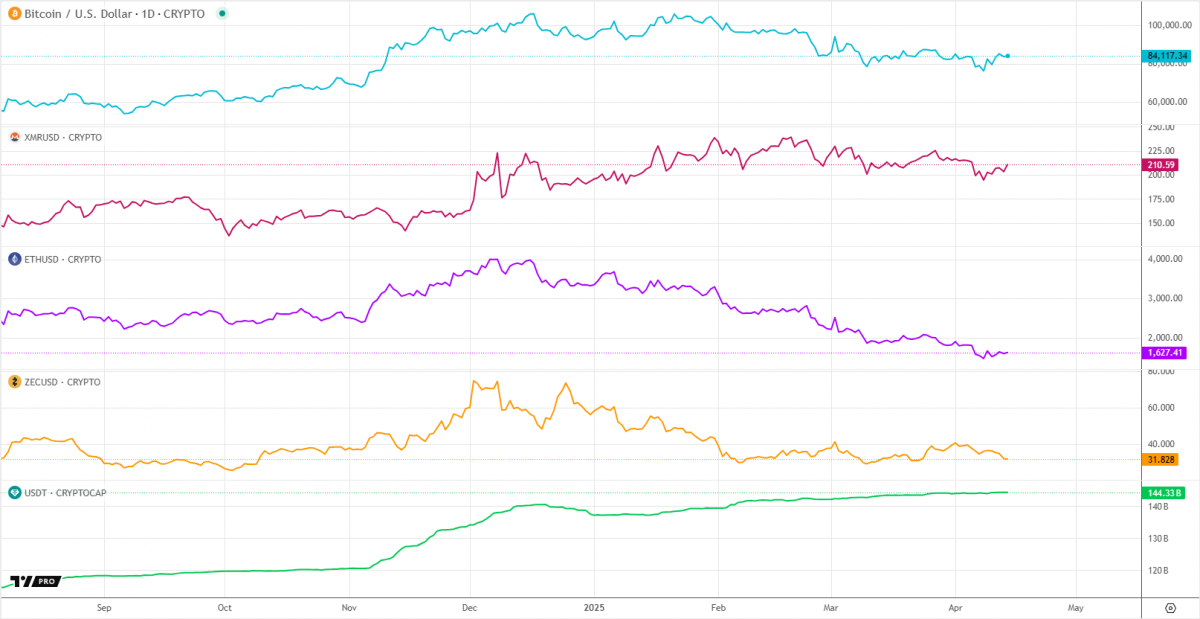Cryptocurrencies have evolved beyond mere investment tools — they’ve become a powerful instrument of political influence. Activists, opposition movements, and even government agencies are increasingly leveraging blockchain technology to finance protests, organise digital voting, and collect donations. In this article, we will explore how digital assets are reshaping the political landscape, the risks involved, and the potential impact on the global economy.
Cryptocurrencies as a tool for financing protests
Across the globe, activists are turning to crypto to bypass financial restrictions. When governments freeze bank accounts or limit international transfers, Bitcoin and other altcoins offer a lifeline.
For example:
- Hong Kong (2019-2020): Protesters raised Bitcoin and USDT to support media outlets, legal aid, and event organisers.
- Belarus (2020): The opposition used cryptocurrencies to work around frozen accounts.
- Nigeria (2020-2024): The #EndSARS movement turned to BTC and USDT after traditional payment channels were blocked.
Advantages:
- Anonymity
- Circumvention of sanctions
- International support
Risks:
- Transaction tracking (via tools like Chainalysis)
- Volatility in exchange rates
- Government crackdowns or crypto bans
Blockchain voting: the future of democracy or a new threat?
Blockchain offers transparent and tamper-proof voting systems, but it’s not without challenges.
Advantages:
- Transparency: Every vote is recorded immutably on the blockchain.
- Fraud protection: Data cannot be changed retroactively.
- Remote participation: Vote from anywhere with internet access.
Risks:
- Cyberattacks: Hacks on smart contracts or voter wallets.
- Loss of anonymity: If privacy isn’t fully protected, votes could be linked to identities.
- Centralisation: Who controls the blockchain — the government or a private company?
Examples:
- Estonia: Has tested blockchain-based voting since 2014.
- Sierra Leone (2018): Held the first partially blockchain-based election.
- Russia (2020): Trialled blockchain voting for constitutional amendments (criticised for lack of transparency).
Crypto donations to political parties
Political donations in crypto are gaining traction.
For example:
- USA: Both Democrats and Republicans have accepted Bitcoin donations.
- Europe: Pirate Parties in countries like the Czech Republic and Germany actively collect cryptocurrencies.
- Ukraine: The Come Back Alive Foundation has received crypto donations for military aid.
Challenges:
- Regulation: The EU and the US require KYC checks for large donations.
- Reputational risks: Anonymous donors can raise concerns about illicit funding.
Top 5 cryptocurrencies used in political movements
1. Bitcoin (BTC) — The “Digital Gold” of the protest movements
Political relevance:
- Funding activists (e.g.Hong Kong, Nigeria, Belarus).
- Circumventing financial censorship.
- Campaign contributions in the U.S.
Pros:
- Recognition and high liquidity.
- Fully decentralised — no central authority can block it.
Cons:
- Pseudonymous — not fully anonymous, and traceable with forensic tools.
- Slower transaction speeds make urgent transfers difficult.
2. Monero (XMR) — “Invisible” choice for activists
Political relevance:
- Complete anonymity — ideal for activists in heavily censored regimes.
- Used to bypass sanctions and financial monitoring.
Pros:
- Absolute privacy — no visibility into sender, recipient, or transaction amount.
- Resistant to blockchain analysis.
Cons:
- Banned in some countries (e.g. Japan, South Korea).
- Low liquidity and fewer fiat.
3. Ethereum (ETH) — Powering blockchain voting and smart contracts
Political relevance:
- Decentralised voting (DAO, Snapshot).
- Transparent donations via smart contracts.
Pros:
- Versatile — can be programmed for various political applications.
- Transparent and traceable on-chain activity.
Cons:
- High transaction fees can discourage small contributions.
- Vulnerable to hacks (e.g. DAO Hack in 2016).
The Ethereum price chart reflects how the market sees its growing use in governance and political tech.
4. Zcash (ZEC) — “Semi–anonymous” option
Political relevance:
- Optional privacy — users can choose public or private transactions.
- More regulatory-friendly than Monero.
Pros:
- Selective anonymity.
- Supported by groups like the Electronic Frontier Foundation (EFF).
Cons:
- Privacy isn’t automatic — users may accidentally expose data.
- Lower adoption than BTC or ETH.
5. Tether (USDT) — Stable donations without volatility
Political relevance:
- Financing of NGOs.
- Fast and stable international transfers.
Pros:
- Pegged to the U.S. dollar — low volatility.
- Widely accepted on major exchanges.
Cons:
- Centralized — Tether can freeze funds.
- Regulatory pressure from U.S. agencies like the SEC.

How could crypto in politics reshape the global economy?
- Sanctions evasion: Countries like Iran and Russia can use cryptocurrencies to bypass economic restrictions.
- New financial systems: Decentralised Finance (DeFi) could compete with traditional banks.
- Cyber conflicts: Increased risk of attacks on blockchain voting systems and crypto funds.
- Tighter Regulations: Governments in the EU, USA, and China are intensifying oversight.
Cryptocurrencies are empowering political movements, enabling borderless donations, and offering alternatives to traditional voting systems—but they also raise new security, ethical, and regulatory challenges. The future depends on finding balance between freedom and regulation.

Disclaimer: The views expressed in this article are those of the author and may not reflect the views of the CryptoTotem team. This article is for informational purposes only and is not intended to be used as legal, tax, investment or financial advice. The author or the publication does not hold any responsibility, directly, or indirectly, for any damage or loss caused or alleged to be caused by or connected with the use of or reliance on any content, goods or services mentioned in this article. Readers should do their own research before taking any action on this matter.
